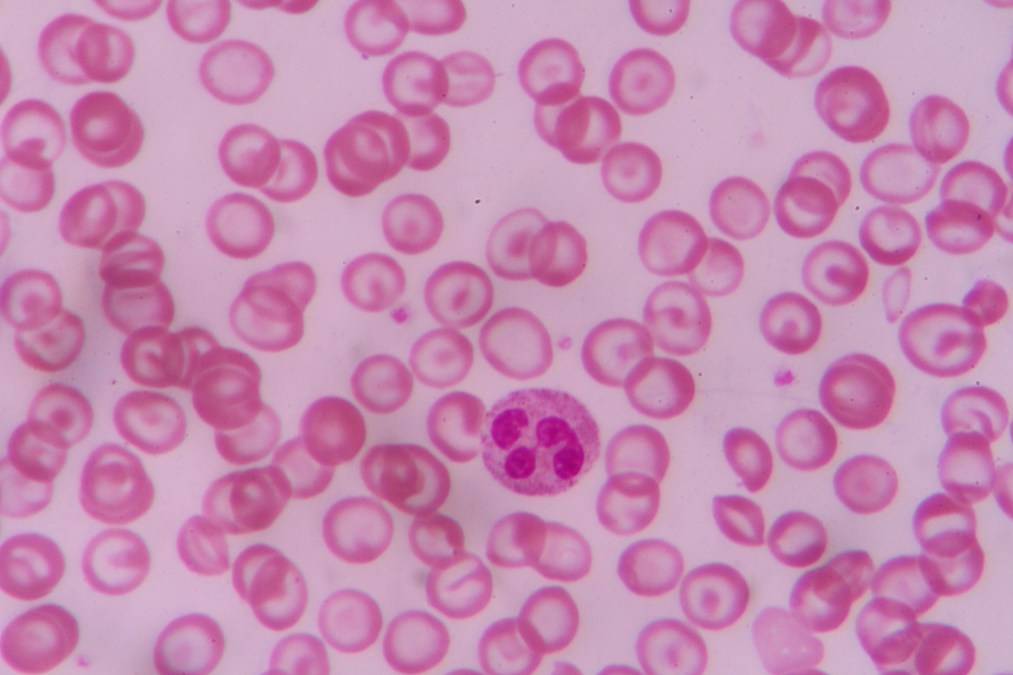Leveraging data to address Sickle Cell Disease

Today, Juneteenth, is also recognized as World Sickle Cell Awareness Day, an annual day to increase the public understanding of Sickle Cell Disease (SCD) and the challenges patients experience. Progress has been made since the United Nations established this day of recognition ten years ago, but there is still much work to be done. Defeating SCD will need to begin with data – data for understanding the disease, for addressing it through the healthcare system, and for developing better, sustainable treatments.
Sickle cell disease (SCD) is the most common inherited blood disorder in the United States. According to the U.S. Department of Health and Human Services (HHS), there are over 100,000 Americans living with SCD. The disease is most common among people of African ancestry, with about 1 in 12 African Americans carrying the gene. A small percentage of Hispanics are affected as well.
SCD is known for causing severe episodes of acute and chronic pain throughout an individual’s life, and often causes severe anemia and greatly increased susceptibility to infections. The illness also causes organ and tissue damage over time, and significantly lowers the life expectancy of those affected. While some people with the disease live fairly normal lives, many suffer from a number of these complications.
While awareness and understanding of SCD has increased in recent years, there is still much more we need to know. There is a nationwide demand for population-level SCD surveillance data to address the needs of the sickle cell community. The federal government is taking steps to raise awareness and improve data collection for the disease. Based on these needs, the HHS Office of the Chief Technology Officer has partnered with the nonprofit Center for Open Data Enterprise (CODE) and &Partners to identify high-value datasets and potential interventions to improve care for patients with Sickle Cell Disease.
The Office of the CTO and CODE, in partnership with the HHS Office of the Assistant Secretary for Health (OASH), will co-host a virtual webinar on Leveraging Data to Address Sickle Cell Disease next week. The Webinar will feature keynotes from Assistant Secretary for Health Admiral Brett Giroir and the President of Howard University, Dr. Wayne A. I. Frederick. The one-hour virtual Webinar, which is open to the public, will be held at 12:00pm EST on June 24, and will be available as a recording after the livestream. This eventbrite link has information and registration. The Webinar will be followed by an invitation-only virtual Roundtable on Leveraging Data to Address Sickle Cell Disease on June 25, bringing together medical experts, patients, patient advocates, and policymakers to discuss the data needed to improve SCD diagnosis, treatment, and patient care.
As part of this project on SCD, the HHS Office of the CTO and &Partners convened a workshop and a series of interviews to map out the “care journey” that SCD patients experience. The project utilizes the new “Health+” methodology being developed by HHS. A major concern for patients is the transition from pediatric to adult care and their emergency department (ED) experience. One patient interviewee noted that, “Transition age is when you start to encounter the discrimination a lot more, because you’re not a cute little kid anymore that everybody has empathy for. You’re an adult, you’re grown and so they change, you receive different treatment.” Young adult SCD patients must bear the burden of learning how to coordinate specialty and primary care for themselves, with very little knowledge on how to do so.
SCD patients also face many barriers when seeking care in the emergency department (ED). The ED is often a patient’s last resort when seeking pain management, but for some it is the only option. Patients commonly miss school, work and other priorities for unexpected trips to the ED. Due to the widespread lack of knowledge and experience from ED providers on the disease, patients often don’t receive the care they need.
The lack of a national-level SCD program leads to data and knowledge gaps that ultimately hinder SCD patients’ transition from pediatric to adult care, their experience in EDs, and the overall ability to assess and improve treatment options. The National Institutes of Health (NIH) has identified the need for a new population-based surveillance system to address the lack of information surrounding SCD and SCD patients. Such a system would aim to follow patients longitudinally, and should contain demographic, laboratory, clinical, treatment, and outcome information. Physicians and researchers could use anonymized data from electronic health records, with appropriate patient permission, to develop systems to ensure a smoother transition from pediatric to adult care for SCD patients.
While there are still few statewide SCD data collection efforts, one major multi-state program is now collecting data on SCD on both an individual and population level. The Sickle Cell Data Collection (SCDC) program has worked with the Centers for Disease Control and Prevention and others to collect information to monitor the long-term trends in diagnosis, treatment, and access to health care for people with SCD since 2010. The program, currently active in California and Georgia and slated to expand to additional states, aims to help inform policy and healthcare standards that improve and extend the lives of people with SCD.
In addition, data on the social determinants of health (SDOH), as well as clinical and claims data, can be used to educate emergency department physicians who may lack knowledge or experience working with SCD patients and may stigmatize them in ways that prevent them from receiving good care. SDOH factors, “the conditions where people live, work, and play,” are a key component in identifying health risks and improving health care outcomes for individuals. SDOH data can play a vital role in helping patients with SCD by identifying those at risk for different health outcomes and developing community-level interventions to aid the SCD community.
By identifying populations with greater risk for adverse health outcomes from SCD, by tracking patients’ experiences, and by analyzing different types of data, we can provide healthcare providers, researchers, and patients with the knowledge to better treat, manage, and allocate resources to people living with SCD around the country. Next week’s HHS events are an important step towards that goal.
Temilola Afolabi is the Research Associate at the Center for Open Data Enterprise (CODE). She can be reached at temilola@odenterprise.org.




